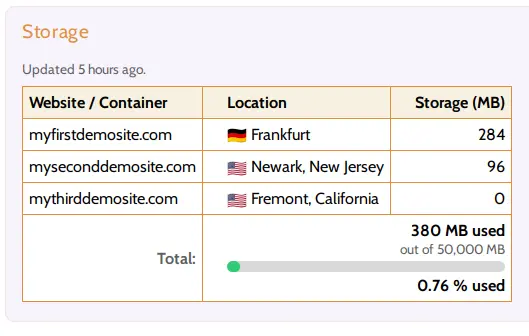Startups have always relied on strong technical co-founders. Steve Jobs recruiting technical genius Steve Wozniak, made technical co-founders the norm for the longest time. Startups preferred to hire a technical co-founder and leave the technical bits to an expert.
This has changed over the last few years. Increasingly, non-technical founders are launching their startups without the help of a dedicated technical co-founder. Online tools and services have made it remarkably easy for non-technical startup founders to start an online business. The help of a dedicated technical co-founder is not always necessary. This trend has recently been called the “no code”/”low code” movement – the phenomenon where first time non-technical entrepreneurs are able to bootstrap a startup, using little (low) to no code.
This is a fascinating development, as this truly democratizes entrepreneurship by removing the technical barriers to entry. But there are many other reasons why so many founders are choosing not to have a technical co-founder.
Here, we list the seven advantages of not having a dedicated technical co-founder:
1. Save money
Hiring a technical co-founder can be expensive for your company. For startups who still haven’t found a dedicated customer base or product-market fit, investing upfront on a CTO to build an minimum viable product, is expensive and plausibly risky. Hiring a dedicated CTO could cost you tens of thousands of dollars over just a few months.
2. Have greater control
By technically leading your business, you will have greater control over its direction. A common regret among founders is that they wished they got their hands dirtier earlier. They feel that their technical co-founders unknowingly made decisions that they would not have made personally. They wish that they took greater control of the technical leadership of their company from the very beginning.
As a startup founder you should know what’s powering your business. Not having a technical co-founder will force you to understand the technical side of your business. This will also help you when you are in meetings with critical clients, and require the much needed technical confidence to convert those meeting into real sales. As a leader you will be more confident in everything and become a better founder later on.
3. We live in the Low-Code, No-Code era
The internet today is full of Low-Code, No-Code tools, that can help you build prototypes for your startup with minimal or no coding knowledge. Low-Code or No-Code might sound like buzzwords, but this landscape is very real.
No code refers to use of tools or platforms which allow you to build or edit apps and websites, without actually writing any code at all. You will basically be using Graphical User Interfaces to design and build your application.
In contrast, low-code generally refers to tools or platforms that massively reduce the amount of code needed for building websites and apps. Those who advocate for low code approaches, highlight the ability of modern tools that make it possible to build complex applications, using only a few adjustments to the underlying code.
Many old school Microsoft Excel power-users, especially those who were heavy users of macros, can relate to this. Some Excel users were able to create very complex spreadsheets using macros.
Today there are numerous cloud based tools available for building a software application. These are easy to use and many are even free for commercial purposes.These Low-Code/No-Code tools have massively reduced the entry barrier for non-technical founders, or founders who are technically “aware”, but not quite at the same level as a professional software engineer or designer.
Gone are the days when you needed a team of people with degrees in graphic design or computer science, to run a simple eCommerce website.
4. Hiring freelancers is easier than ever
If you get stuck somewhere and find it difficult to design or build a part of your application, then you can easily hire freelancers to complete the task. Hiring freelancers is very easy and there are large hiring boards with big pools of developers ready to start working on your project in no time. The pandemic situation of the 2020s, has only accelerated this trend towards remote work and freelancing.
5. Learning to code itself has become easier
There are thousands of free and paid online courses that will help you learn functional coding in no time. Yes, this can be intimidating and challenging if you have never done something like this before. However, keep in mind that you do not need to become an expert coder to run a startup or build a prototype of a minimum viable product that you can test with a few early users.
6. It allows you to focus on building an audience first
You may have already heard this a million times now, in these times when influencers are ubiquitous. You want to build an audience, before you start investing in building software. While it has become easy to build prototypes, building fully functional software at scale is still capital intensive. Quality developers are expensive, even if you outsource your work to less expensive countries.
While you work on your prototype, you should focus on building an audience to test your hypothesis. This is why pre-launching your app with a landing page & preferably a blog is essential. You want to start building a mailing list months before you start writing your first line of code. This will help generate early interest in your project. You should aim to have a following for your startup by the time you are ready to launch.
It is also essential to create social media profiles to engage with your target audience. Do not hesitate to experiment with other channels such as engaging your audience through a Youtube channel or Instagram live.
All these help in making people aware of your brand and building long term channels for you to reach your audience.
7. Co-founder relationships are not easy
Relationships between founders and technical co-founders are not always great, particularly because of the stressful environment startups operate in. In the early stages, your main focus should be on developing the project and marketing it.
You shouldn’t have to get involved in the hassles of working with lawyers in managing stock options and equity with fellow co founders.
Stressful situations like early stage startups and businesses, also make it more difficult to make a relationship work. This is why it is often recommended to at least have co-founders you have known for a while
Final Thoughts
Having a technical co-founder is not as important as it might appear. A startup can manage without one, particularly with the tools and platforms available today. It really is a breeze to develop or design anything, even for those who don’t consider themselves to be technical.
Not choosing to go with a technical co-founder will help you develop technical understanding of your project and develop the required skills needed to manage your project. Having more founders doesn’t always guarantee better results, and comes with its own sets of challenges.
Great companies have been started by both – great co-founding teams & great solo entrepreneurs. Of course, in the medium to long term, you can only grow by growing your team and at some point you will need to bring in specialized technical expertise.
In my view, the downsides of having full time technical co-founders is understated. It takes time and it is not easy to find the right technical founder for your company. It is genuinely difficult to make quick decisions with someone you have not known for a long time. Many times, not everyone will be on the same page and this can lead to conflicting visions about the company which is not good in the long run. That’s why it’s important to think hard if a technical co-founder is really needed for your startup or if you can achieve the same result without one.
We hope you liked this article and found it useful. Please let us know your thoughts in your comments below.



